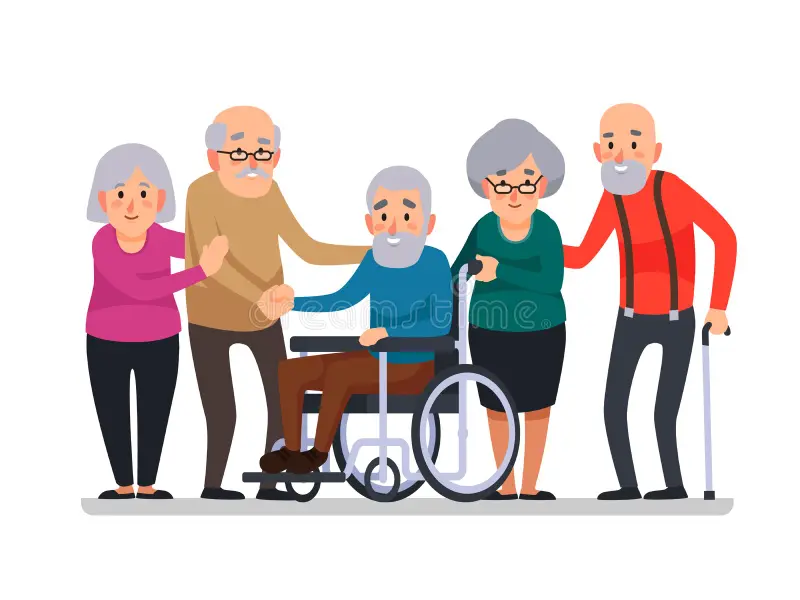Uganda, like many countries in sub-Saharan Africa, is experiencing demographic changes characterized by an increasing aging population
. As life expectancy rises, the burden of non-communicable diseases (NCDs), including cancer, is expected to grow significantly. The intersection of aging and cancer presents unique challenges and opportunities for Uganda’s healthcare system.
1. Demographic Shifts and Aging in Uganda
- Population Growth: Uganda’s population is predominantly young, but improvements in healthcare, nutrition, and living conditions have led to increased life expectancy. As a result, the proportion of older adults (aged 60 and above) is steadily rising.
- Aging Trends: While Uganda’s population remains younger compared to global standards, the number of older adults is projected to increase significantly in the coming decades. This demographic shift is expected to contribute to a higher incidence of age-related diseases, including cancer.
2. Cancer Incidence and the Aging Population
- Age as a Risk Factor: Age is one of the most significant risk factors for cancer, with the majority of cancers diagnosed in individuals aged 60 and above. As the Ugandan population ages, the incidence of cancers such as prostate, breast, colorectal, and lung cancer is likely to increase.
- Cancer Types: In Uganda, prostate cancer is already one of the most common cancers among older men, while breast cancer and cervical cancer are prevalent among older women. With aging, the incidence of other cancers, such as colorectal and stomach cancer, is also expected to rise.
3. Challenges in Addressing Cancer in the Aging Population
- Late Diagnosis: Older adults in Uganda often present with advanced-stage cancer due to a lack of awareness, limited access to healthcare, and stigma associated with the disease. Late-stage diagnosis complicates treatment and reduces survival rates.
- Comorbidities: The aging population is more likely to have multiple health conditions (comorbidities) such as hypertension, diabetes, and cardiovascular diseases. These comorbidities can complicate cancer treatment and management, requiring a more integrated approach to care.
- Healthcare Infrastructure: Uganda’s healthcare system faces challenges in providing adequate cancer care for the aging population, including limited specialized care, insufficient diagnostic facilities, and a shortage of trained oncologists and geriatricians.
- Economic and Social Factors: Older adults in Uganda may face economic hardships, making it difficult to afford cancer treatment. Additionally, the traditional family support system may be strained as more family members migrate to urban areas, leaving older adults without sufficient care.
4. Strategies for Managing Cancer in the Aging Population
- Early Detection and Screening: Implementing targeted cancer screening programs for older adults can help detect cancers at an earlier, more treatable stage. For example, prostate-specific antigen (PSA) testing for prostate cancer and mammography for breast cancer could be prioritized for older populations.
- Integrated Care Models: Developing integrated care models that address both cancer and comorbid conditions is essential for older adults. This includes multidisciplinary teams that collaborate to manage cancer treatment alongside other chronic diseases.
- Geriatric Oncology Services: Establishing geriatric oncology services that specialize in the care of older adults with cancer is crucial. These services should focus on personalized treatment plans that consider the patient’s overall health, comorbidities, and quality of life.
- Palliative Care: Expanding palliative care services is vital for older adults with advanced cancer. Palliative care can help manage pain, improve quality of life, and provide support to both patients and their families.
- Health Education and Awareness: Increasing awareness about the risks of cancer in older adults and promoting regular health check-ups can lead to earlier detection and better outcomes. Educational campaigns should be tailored to the specific needs and concerns of older adults.
- Support Systems: Strengthening social support systems for older adults with cancer is essential. Community-based programs that offer emotional, financial, and logistical support can help older patients navigate the challenges of cancer care.
5. Policy and Advocacy
- National Cancer Control Plans: Incorporating the needs of the aging population into Uganda’s National Cancer Control Plan is essential. This includes allocating resources for age-specific cancer prevention, early detection, treatment, and palliative care.
- Health Financing: Advocating for increased government funding for cancer care, particularly for older adults, is necessary to ensure equitable access to treatment. Health insurance schemes should also consider the specific needs of older cancer patients.
- Research and Data Collection: Conducting research on cancer in the aging population in Uganda is critical for understanding the specific challenges and outcomes. This data can inform policies and programs designed to improve cancer care for older adults.
6. Community Engagement and Capacity Building
- Training Healthcare Providers: Training healthcare providers, including primary care physicians, nurses, and community health workers, to recognize and manage cancer in older adults is essential. This training should include geriatric care principles and palliative care.
- Community-Based Interventions: Developing community-based interventions that focus on cancer prevention and early detection in older adults can help reduce the burden of cancer. These interventions should be culturally sensitive and accessible to rural populations.
- Support for Caregivers: Providing support and resources for family members and caregivers of older adults with cancer is important. Caregiver training programs, respite care, and financial assistance can help reduce the burden on families.
7. Future Directions
- Adapting to Demographic Changes: Uganda must prepare for the growing cancer burden among its aging population by adapting its healthcare system to meet the unique needs of older adults.
- Sustainable Cancer Care: Ensuring sustainable cancer care for the aging population requires long-term planning, investment in healthcare infrastructure, and continuous capacity building.
- International Collaboration: Collaborating with international organizations and partners can help Uganda access resources, expertise, and best practices in geriatric oncology and cancer care for older adults.
